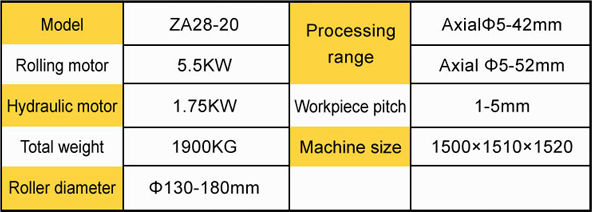
-
 Afrikaans
Afrikaans -
 Albanian
Albanian -
 Amharic
Amharic -
 Arabic
Arabic -
 Armenian
Armenian -
 Azerbaijani
Azerbaijani -
 Basque
Basque -
 Belarusian
Belarusian -
 Bengali
Bengali -
 Bosnian
Bosnian -
 Bulgarian
Bulgarian -
 Catalan
Catalan -
 Cebuano
Cebuano -
 Corsican
Corsican -
 Croatian
Croatian -
 Czech
Czech -
 Danish
Danish -
 Dutch
Dutch -
 English
English -
 Esperanto
Esperanto -
 Estonian
Estonian -
 Finnish
Finnish -
 French
French -
 Frisian
Frisian -
 Galician
Galician -
 Georgian
Georgian -
 German
German -
 Greek
Greek -
 Gujarati
Gujarati -
 Haitian Creole
Haitian Creole -
 hausa
hausa -
 hawaiian
hawaiian -
 Hebrew
Hebrew -
 Hindi
Hindi -
 Miao
Miao -
 Hungarian
Hungarian -
 Icelandic
Icelandic -
 igbo
igbo -
 Indonesian
Indonesian -
 irish
irish -
 Italian
Italian -
 Japanese
Japanese -
 Javanese
Javanese -
 Kannada
Kannada -
 kazakh
kazakh -
 Khmer
Khmer -
 Rwandese
Rwandese -
 Korean
Korean -
 Kurdish
Kurdish -
 Kyrgyz
Kyrgyz -
 Lao
Lao -
 Latin
Latin -
 Latvian
Latvian -
 Lithuanian
Lithuanian -
 Luxembourgish
Luxembourgish -
 Macedonian
Macedonian -
 Malgashi
Malgashi -
 Malay
Malay -
 Malayalam
Malayalam -
 Maltese
Maltese -
 Maori
Maori -
 Marathi
Marathi -
 Mongolian
Mongolian -
 Myanmar
Myanmar -
 Nepali
Nepali -
 Norwegian
Norwegian -
 Norwegian
Norwegian -
 Occitan
Occitan -
 Pashto
Pashto -
 Persian
Persian -
 Polish
Polish -
 Portuguese
Portuguese -
 Punjabi
Punjabi -
 Romanian
Romanian -
 Russian
Russian -
 Samoan
Samoan -
 Scottish Gaelic
Scottish Gaelic -
 Serbian
Serbian -
 Sesotho
Sesotho -
 Shona
Shona -
 Sindhi
Sindhi -
 Sinhala
Sinhala -
 Slovak
Slovak -
 Slovenian
Slovenian -
 Somali
Somali -
 Spanish
Spanish -
 Sundanese
Sundanese -
 Swahili
Swahili -
 Swedish
Swedish -
 Tagalog
Tagalog -
 Tajik
Tajik -
 Tamil
Tamil -
 Tatar
Tatar -
 Telugu
Telugu -
 Thai
Thai -
 Turkish
Turkish -
 Turkmen
Turkmen -
 Ukrainian
Ukrainian -
 Urdu
Urdu -
 Uighur
Uighur -
 Uzbek
Uzbek -
 Vietnamese
Vietnamese -
 Welsh
Welsh -
 Bantu
Bantu -
 Yiddish
Yiddish -
 Yoruba
Yoruba -
 Zulu
Zulu
Efficient Bolt Rolling Machine for Enhanced Manufacturing Precision and Speed
The Importance and Functionality of Bolt Rolling Machines in Manufacturing
In the industrial ecosystem, the manufacturing of bolts and similar fasteners plays a crucial role in various sectors, including automotive, construction, and aerospace. Among the essential equipment used in the production of these fasteners are bolt rolling machines. These machines are designed to create high-strength bolts with precision and efficiency, fulfilling the growing demand for quality fasteners in today's competitive market.
Understanding Bolt Rolling Machines
Bolt rolling machines are specialized industrial machinery that transform raw metal rods into finished bolts through a process called cold forming. Unlike traditional machining methods that cut material away, bolt rolling utilizes the principle of deformation, where heat is not introduced to the metal, ensuring that the material maintains its integrity and strength. This process typically results in less waste and enhanced material properties compared to subtractive techniques.
The operation of bolt rolling machines involves placing a metal rod into the machine. The machine uses rotating dies that shape the metal as it moves through them, helping to achieve the desired dimensions and characteristics of the final product. The advantages of this method are profound; it allows for the production of large batches of bolts at high speed, maintaining consistent quality throughout.
Advantages of Using Bolt Rolling Machines
1. Cost Efficiency Bolt rolling machines are designed for high-volume production. Automated systems can produce thousands of bolts per hour, making it an economically viable option for manufacturers. The reduction in waste and the energy-efficient nature of the cold forming process further contribute to overall cost savings.
2. Enhanced Material Properties The cold forming process ensures that the grain structure of the metal is aligned, which significantly improves the strength and durability of the bolts produced. This is essential for applications where performance and safety are non-negotiable.
3. Precision and Consistency Bolt rolling machines are capable of delivering high precision in terms of dimensions, which is critical in ensuring that the bolts fit perfectly in their intended applications. This consistency reduces the likelihood of defects and rework, which can drive up costs and downtime in production.
bolt rolling machine product

4. Flexibility in Design Modern bolt rolling machines come equipped with advanced technology that allows for easy changes in design specifications. This adaptability means that manufacturers can quickly respond to market demands or custom orders without significant delays.
Applications of Bolt Rolling Machines
Bolt rolling machines find their application across various industries. In the automotive sector, they are responsible for producing the fasteners that hold vehicles together, ensuring safety and reliability. In construction, these machines help fabricate the bolts that secure structural components, supporting the integrity of buildings and bridges. The aerospace industry also relies on high-strength bolts produced through rolling processes, given the stringent safety standards and performance requirements in this field.
Future Trends in Bolt Rolling Technology
As technology advances, so does the bolt rolling machine. The introduction of smart manufacturing techniques, including the Internet of Things (IoT) and artificial intelligence (AI), has begun to revolutionize the industry. These technologies enable predictive maintenance, real-time monitoring of production processes, and optimization of machines for enhanced efficiency.
Moreover, as sustainability becomes a priority in manufacturing, bolt rolling machines are being designed to be more energy-efficient and to minimize waste even further. Innovations in material science also pave the way for the use of higher-performance materials that can be shaped and formed in ways that were not previously possible.
Conclusion
In conclusion, bolt rolling machines represent a fundamental component of the manufacturing process for fasteners. Their ability to produce high-quality, durable bolts at scale makes them indispensable in a wide range of industries. As technology evolves, the future of bolt rolling machines looks promising, with advancements that can lead to even greater efficiency and sustainability. Businesses that invest in these machines will not only enhance their productivity but also ensure they meet the demands of an ever-changing market landscape.
